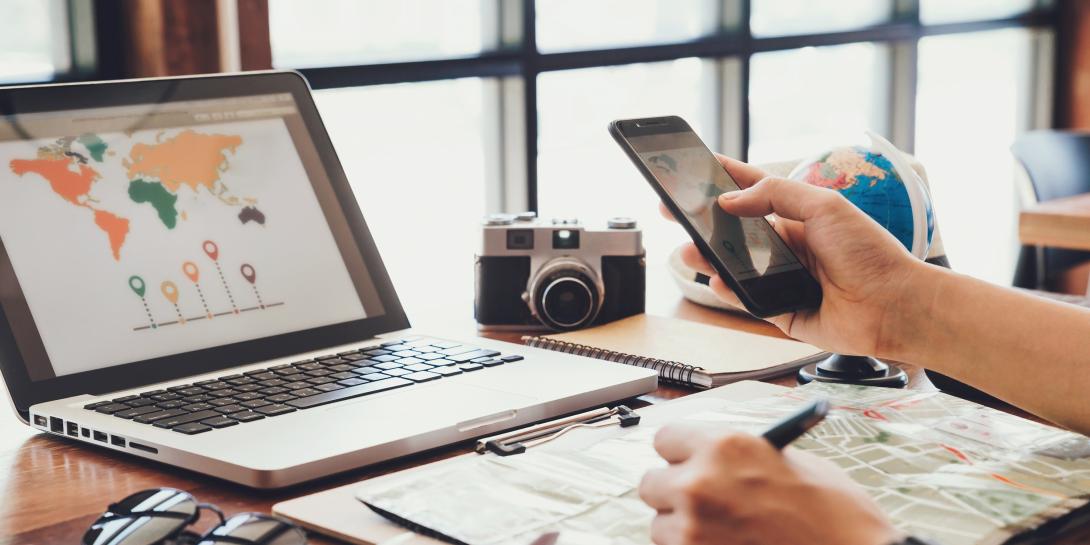Sticking to Your Vacation Budget

You’ve saved the money you needed for your next big vacation. You’ve made the reservations and packed your bags. Now, the challenge is to stick to your budget while you’re away. If you can do that, you’ll make great memories without having any financial regrets when you get back home. Here are some tips that can help:
Prepare Your Travel Finances
A successful trip begins with a plan. After you’ve booked the big-ticket items for your trip, like airfare and accommodations, prepare for daily and incidental expenses.
- Pack your credit cards. Review your credit cards to determine which one should be your primary vacation card. Then consider bringing a second credit card just in case – but keep it in a different place to minimize your potential loss. Don’t forget to notify your card issuer that you’re traveling and photocopy both sides of your cards, so you have all the information you need in case of loss.
- Pack your debit card. Pack a debit card in case you need access to additional cash or to withdraw currency of the country you’re visiting. Remember to notify your bank before you leave.
- Decide how much cash to carry. Cash is especially handy when you travel for purchases like short taxi rides, snacks at the airport, and tipping. There will be some things that you can’t pay for with a credit card. If you are traveling internationally, don’t forget to convert your cash to the local currency.
Protect Yourself From Travel Fraud
Unfortunately, traveling makes you more vulnerable to fraud. Taking a few precautions can keep your hard-earned money out of the hands of scammers.
- Deal with reputable travel and hotel companies. It’s easy to be lured in by seemingly fantastic deals on travel websites, but be careful as it may be too good to be true. Do your research to make sure you are booking with a legitimate company and paying through their official website. Never give anyone your credit card information if they contact you.
- Learn about current financial scams in the area you are traveling. Spend a few minutes searching the internet to learn about local scams. If someone is passing counterfeit currency or staking out ATMs, you should be aware of it. Always keep track of your cash and cards wherever you travel and pay attention to your surroundings.
- Review good travel safety tips. Even the most experienced travelers should review travel safety practices. You may need to take precautions that you usually don’t have to think about. The US Department of State has some great travel safety tips that we would recommend here.
Stick With Your Budget
You began your vacation planning by making some good financial decisions, finish strong by sticking to your budget while you’re traveling.
- Say no to overpriced meals and activities. You’re on vacation for new experiences, and you want to taste the local flavors. However, it still pays to be a savvy consumer. Find places where the locals eat to get the best value. Book tours and activities directly through local tour guides and companies. Keep in mind that you don’t have to pack your schedule to enjoy your vacation.
- Prepay large expenses when possible. Look into paying for expensive activities in advance, like attraction tickets or excursions. This way you can really think about those big financial decisions and have a smaller portion of your travel budget to manage while you are away. Using a credit card to prepay large expenses and paying off the card before you leave is also a good idea.
- Give yourself a daily allowance. Divide up the amount of money you have left in your budget by the number of days on your vacation, then decide how much money you can spend each day. You can always adjust as you go, adding unspent allowance from one day to the next.
- Keep track of your expenditures. Add up your receipts at the end of each day or check your credit card account online. This information will help you adjust your daily allowance and let you know if you are in danger of running out of money before the end of your trip.
- Avoid impulse purchases. If there is something you’re interested in, don’t rush into a decision. Think about whether you could buy it back home and how you’ll transport the item if it is large or fragile. Finally, plan to sleep on it. If you still want to make the purchase, return the next day.
- Decide where to splurge. You’ve worked hard to make good financial choices on your trip, so treat yourself! Decide what you want to splurge on and work that into your travel budget.
Travel Planning Can Pay Off
Managing your travel finances during the trip can be easy with a good budget to follow. Following through on your travel planning can add an extra feeling of satisfaction to your journey.
Just don’t forget to tell us that you’re traveling. We’ll make sure your cards work smoothly while you’re away!